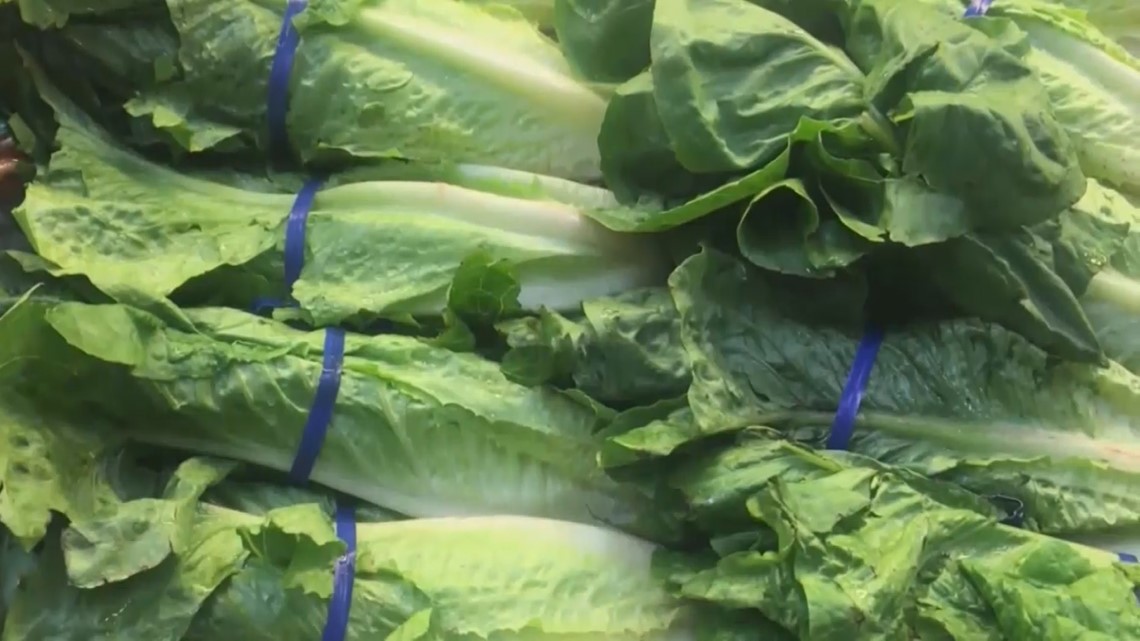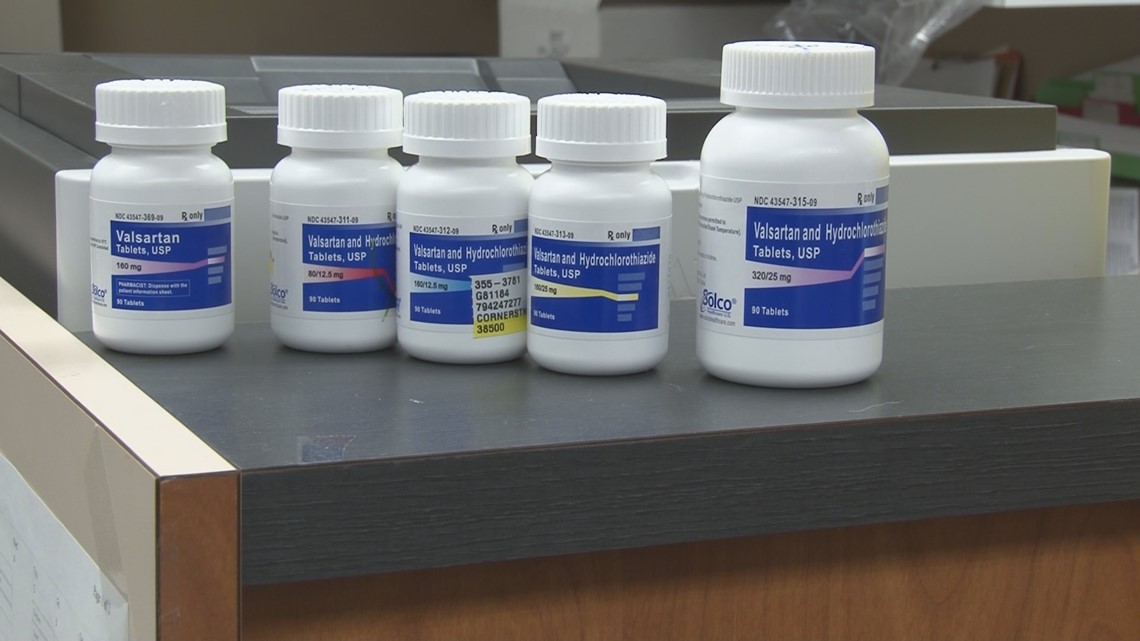Whether it concerns ground beef, romaine lettuce, or blood pressure medication, recalls are announced nearly every day, making it easy to wonder if the food we eat and the medicines we take are safe.
According to the U.S. Department of Agriculture, an average of 304 food recalls were issued each year between 2004 and 2008. In the next five years, the average jumped to 676 recalls per year, and in the most recent five years, according to the U.S. Public Interest Research Group, it rose again, to 762 recalls per year. But despite the fear that recalls cause in many consumers, one of the state’s leading food safety experts say the trend is a positive sign.
“Our food is extremely safe,” Dr. Jeyam Subbiah said.
Subbiah chairs the Department of Food Science at the University of Arkansas. He said the dramatic increase in the number of recalls has multiple causes.
“Our technologies to detect the pathogens and the extraneous materials have improved,” he explained. “So, we have better technologies to detect."
"If you think about the genome technologies: now we can fingerprint what is the strain of the pathogen that caused the illness? So, if somebody had diarrhea, they can, from the stool, pick up what kind of strain was implicated in that and then they can go back and check it in a food product. Is there the same strain there? And then, can track it back to the food industry and locate, can they detect the strain there?" Subbiah said.
“So, the technologies have improved tremendously in detecting stuff, and the computing technologies, the data analytics, all of them increased,” he explained.
Subbiah said the 2018 E. coli outbreak from romaine lettuce is a good example of the value of improvements in data analysis, as that illness was quickly traced back to one farm in California.


Additionally, the regulatory process became much more thorough thanks to a pair of recent laws.
“In 2006, there was a [Food Allergen Labeling and Consumer Protection Act] that was introduced,” Subbiah said. “People are getting more and more allergic these days. And, undeclared allergens in the food product, if there is something they find, they have to report it.
“And there is a Food Safety Modernization Act. Congress passed it in 2011. That increases the increased amount of the regulation in the food industry. Now, in addition to checking the final quality of the food product, they check all along the production process. They check quite a bit on the environment, and if there are anything above the threshold, they gotta start investigating it.”
Subbiah said another factor in the increase in food recalls is that manufacturers tend to be risk-averse. “Food safety is a top priority, right? They don’t want anybody to get sick or die by eating their food product,” he stated. “And it affects their bottom line. Some of the food-borne illness outbreaks have bankrupted companies.”
Subbiah said, among most large food processing companies, the technology in the production line has not changed much since the 1970’s. He postulated that manufacturing and packaging remain relatively the same because profit margins are so small.
“They produce, sometimes, 24/7,” he explained, “and often, they don’t want to really upgrade to the next level of the industry.”
Pharmaceutical companies have made one large-scale change that some people believe is significant when it comes to the safety of medications.
“There have been an increase in the number of manufacturing facilities for low-cost, generic drugs—these are lower-cost, generic drugs—that are being manufactured across the entire world,” Dr. John Vinson said.
The FDA does inspect factories in other countries if they make drugs for use in the United States. And while Vinson, CEO of the Arkansas Pharmacists Association, mentioned that most overseas facilities get passing scores in their inspection reports, he noted that the massive, ongoing recall of blood pressure medications started with factories in China.
“And those particular recalls have been problematic,” Vinson explained, “because so many Americans—as many as 80 million adult patients in the United States—have high blood pressure, and many of those are treated with medication.”
Vinson said the overall number of drug recalls has remained steady in recent years. Most, he added, involve small amounts of medication that affect a small number of patients.
When a food product is recalled, Subbiah said people who have it should not eat it. Recall notices always include instructions for consumers, either to take the product back to the store from which they got it to receive a refund or to throw the product away. He added that gastrointestinal daredevils should think twice before eating something that has been recalled.
“Better to be safe than sorry,” he said. “We are so fortunate that food is so cheap in this country, right? It’s not worth the risk to eat that food.”
But with medication, Vinson said tossing it might be the wrong answer.


“If you’re treating blood pressure and high blood pressure can lead to strokes or heart attacks, it’s more dangerous to immediately stop the medicine than it would be to stop the medicine in a day, or two, or three days, until you can switch to an alternative,” Vinson explained.
Vinson said the recall of blood pressure medications is a good example of why having a good relationship with one’s physician and pharmacist is so important.
He said most recalls are communicated to patients by their pharmacists and recommended that anyone who takes a medication for which a recall is issued call either their physician or pharmacist as soon as possible to create a new treatment plan.
“It’s not always as simple as, ‘this drug was recalled, and we’ll switch you to a different one,’” Vinson stated. “You may have already been treated with that other medicine, and then there’s less options, you know, because you may need two or three different classes, instead of just a single drug.”
Subbiah and Vinson both said that people should not panic if a recall notice includes something they eat or take. Subbiah noted that a majority of recalls are voluntarily issued by the manufacturer before anyone is affected by the problem.
“Even though the recalls bring a bad publicity to them, they would rather do a recall than somebody getting sick,” he stated, “because that’s a bigger issue for them.”
Subbiah said meat products were traditionally the most likely to be recalled, but that an increasing proportion of recall notices are for vegetables. While meat often contains harmful bacteria, cooking it thoroughly kills the bacteria and makes the meat safe to eat. Vegetables, he explained, are more likely to be consumed raw, when the chances of contracting a foodborne illness are higher.
He also suggested that people not open a food item that has been recalled. While some people might be tempted to look inside a package and smell the food to check for spoilage, most harmful bacteria have no odor.
He said opening the package increases the odds that the bacteria would get on someone’s hands, then get transferred to your utensils, dish towels, or other foods, and the cross-contamination could make them sick.

